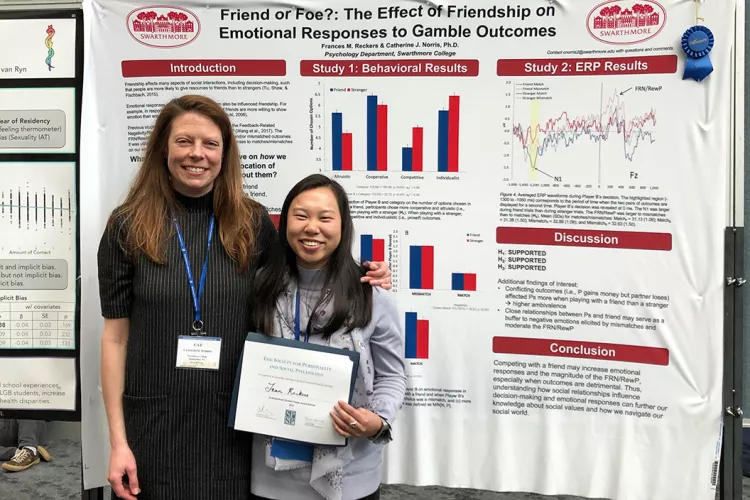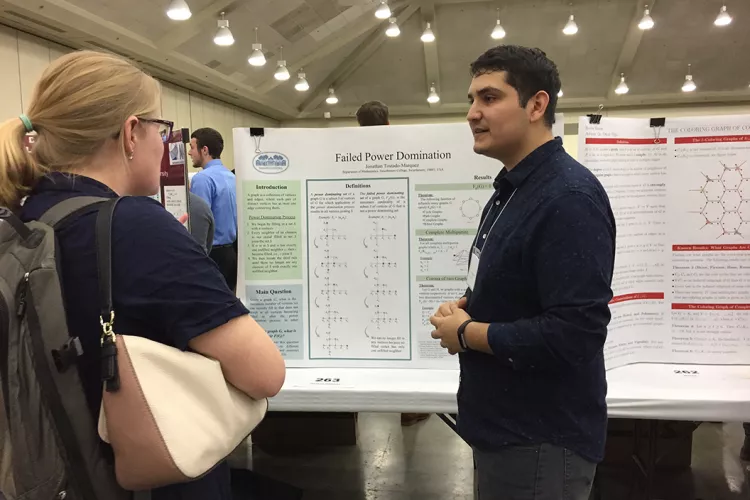Student, Recent Alumna Honored for Research Posters

Fran Reckers ’18, with Assistant Professor of Psychology and Neuroscience Cat Norris, was one of two recipients of the Best Undergraduate Poster Award at the 2019 Society for Personality and Social Psychology Convention.
Jonathan Tostado-Marquez ’19 and Fran Reckers ’18 were recently honored for distinguished work on posters showcasing their undergraduate research.
Tostado-Marquez, a mathematics major from Pomona, Calif., received the Outstanding Poster Award at the Mathematical Association of America student poster session, while Reckers was one of two to receive the Best Undergraduate Poster Award at the 2019 Society for Personality and Social Psychology Convention.
Tostado-Marquez’s research in the field of graph theory focused on the “power dominating” rules, which determine how vertices in a graph are colored in, and how many vertices remain unfilled after their application. His work, guided by Professors of Mathematics Cheryl Grood and Thomas Hunter, stood out among more than 350 posters and 550 student presenters at the session. After commencement this spring, Tostado-Marquez hopes to attend graduate school in California and pursue either teaching or research in mathematics.
“Serving as a math tutor helped me realize just how much I enjoy working with and helping students through their mathematical journey,” he says. “It has been such a rewarding experience that I wish to continue to help other students in the future. As for research, I enjoy working on interesting questions that people don’t have answers to.”

Tostado-Marquez stood out among more than 350 posters and 550 student presenters at the session.
Reckers presented a poster entitled “Friend or Foe?: The Effect of Friendship on Emotional Responses to Gamble Outcomes” based on honors thesis work conducted with the help of Assistant Professor of Psychology and Neuroscience Cat Norris. For her project, Reckers used a social decision-making task to measure how friendship affected decision-making in competition and influenced feelings, positive or negative, based on the outcomes.
“We found that people are more prosocial when playing with a friend and more selfish when playing with a stranger; and playing with a friend buffered emotional responses even when partners disagreed on their decisions,” she says. “Being a neuroscience major, I was also interested in the neural mechanisms underlying social decision-making and emotional responses. To that end, we collected brainwaves using a net of electrodes placed on the scalp.”
For Reckers, who is planning on pursuing a research assistant position in a neuroscience laboratory, potential for further research lies in studying how individual attributes - such as empathy, extraversion, and self-esteem - affect these decisions and the emotional responses.
“Professor Norris has a student in her lab who will be conducting a follow-up study next year, providing us with more data with which we can answer our questions about friendship and social decision-making,” she says. “Ultimately, understanding how social relationships influence interactions can further our knowledge about how we navigate our social world.”
To learn more about how Swarthmore is investing in its vibrant intellectual culture, visit lifechanging.swarthmore.edu.



